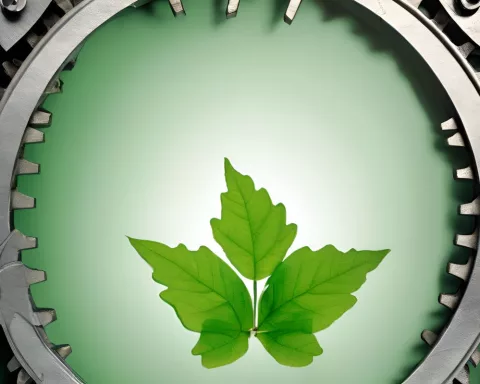Cape Town is leading the world in water management with its innovative plan to increase potable water supply by 7% by 2040 through water recycling. The city brought together global leaders in water reuse to exchange knowledge and experiences, and the New Water Programme aims to enhance the daily water supply by 300 million litres from fresh sources by 2030. This groundbreaking strategy is a testament to the city’s dedication to sustainability and resilience, positioning it as a preeminent figure in global water preservation and recycling.
Revamping Water Management: Cape Town’s Bold New Strategy
What is Cape Town’s new water strategy?
Cape Town is pioneering an innovative water strategy that aims to increase its overall potable water supply by 7% by 2040 through water recycling. The city’s International Water Re-use Conversation gathered mayors and officials from seven cities worldwide to exchange knowledge and experiences in the realm of water recycling. The New Water Programme aims to enhance the daily water supply by 300 million litres from fresh sources by 2030, utilizing water recycling, desalination of seawater, and extraction of groundwater from two primary aquifers.
Cape Town, a metropolis distinctively known for its rich cultural tapestry, historical significance, and stunning natural scenery, is on the brink of pioneering a transformative evolution that will remarkably alter its interaction with a precious entity – water. The city is set to break ground with an innovative water strategy that will serve as a benchmark for progressive urban design and eco-friendly water use.
Global Leaders Gather for Water Re-use Discussion
The innovative Water Strategy that Cape Town has conceptualised is intended to heighten the city’s overall potable water supply by an impressive 7% through the execution of water recycling by 2040. This groundbreaking proposal was a central topic in the recent deliberations at the City’s International Water Re-use Conversation. This spectacular gathering, led by the city’s Mayor, Geordin Hill-Lewis, pooled together mayors and officials from seven cities worldwide, to converge in Cape Town and exchange their knowledge and experiences in the realm of water recycling.
The New Water Programme, integral to this strategy, has been created with the ambition of enhancing the daily water supply by 300 million litres from fresh sources by 2030. This initiative encompasses a broad spectrum of water sourcing, which includes water recycling, desalination of sea water, and extraction of groundwater from two primary aquifers.
Cape Town’s initiative positions the city at the forefront of a global movement, aligning it with several cities worldwide that have been employing water re-use as a long-term sustainable practice. Some of these cities have been engaging in this practice for over fifty years.
Innovative Water Management and Security
An integral part of this ground-breaking endeavour is the development of a state-of-the-art New Water Scheme, which is set to take shape at the Faure Water Treatment Plant and Reservoir in the next few years. The scheme comprises obtaining treated wastewater from the recently revamped Zandvliet Wastewater Treatment Works. The water will then be subjected to a thorough multistage purification process, ensuring it adheres to the most stringent safety standards before being integrated into the dam water supply.
In preparation for this strategy, the city has already initiated a two-year operation of a water re-use demonstration plant at the Zandvliet Wastewater Treatment Works. The outcomes were nothing short of extraordinary, with the quality of water procured surpassing expectations.
Councillor Zahid Badroodien, the Mayoral Committee Member for Water and Sanitation, accentuated the immediate need for such a strategy. The recent drought in Cape Town, a weather phenomenon said to occur once every 590 years, has underscored the critical need for resilient urban planning in the face of rapid urban expansion and climatic unpredictability.
A Shift in Perspective: From Wasted Water to Water Re-use
The fundamental philosophy that forms the bedrock of the city’s plan is a radical alteration in our understanding of water. For Cape Town, the concept of ‘wastewater’ is non-existent, with the city viewing it instead as ‘wasted water’. The city aspires to serve as a beacon of hope for its inhabitants, striving to be a world-renowned city where water is revered as the catalyst for growth and long-term sustainability.
The measures that Cape Town is implementing to safeguard its future water supply are a testament to its unwavering dedication to sustainability and resilience. By harnessing cutting-edge technology, meticulous planning, and a novel perspective on water utilisation, the city is on track to position itself as a preeminent figure in the global sphere of water preservation and recycling. It exudes a ray of hope for a planet grappling with water scarcity, exemplifying a city that isn’t just envisioning a sustainable future, but actively moulding it.
1. What is Cape Town’s new water strategy?
Cape Town’s new water strategy aims to increase potable water supply by 7% by 2040 through water recycling, desalination of seawater, and extraction of groundwater from two primary aquifers. The city’s International Water Re-use Conversation gathered mayors and officials from seven cities worldwide to exchange knowledge and experiences in the realm of water recycling.
2. What is the New Water Programme?
The New Water Programme is an initiative integral to Cape Town’s water strategy, which aims to enhance daily water supply by 300 million litres from fresh sources by 2030. This program encompasses a broad spectrum of water sourcing, including water recycling, desalination of seawater, and extraction of groundwater from two primary aquifers.
3. What is the state-of-the-art New Water Scheme?
The state-of-the-art New Water Scheme is set to take shape at the Faure Water Treatment Plant and Reservoir in the next few years. This scheme involves obtaining treated wastewater from the recently revamped Zandvliet Wastewater Treatment Works and subjecting it to a thorough multistage purification process, ensuring it adheres to the most stringent safety standards before being integrated into the dam water supply.
4. Why is there a need for such a water strategy?
The recent drought in Cape Town has underscored the critical need for resilient urban planning in the face of rapid urban expansion and climatic unpredictability. Councillor Zahid Badroodien, the Mayoral Committee Member for Water and Sanitation, accentuated the immediate need for such a strategy.
5. How is Cape Town shifting its perspective on water utilization?
Cape Town is shifting its perspective on water utilization by viewing wastewater as ‘wasted water’ instead of ‘wastewater.’ The city aspires to serve as a beacon of hope for its inhabitants, striving to be a world-renowned city where water is revered as the catalyst for growth and long-term sustainability.
6. What does Cape Town’s water strategy mean for the rest of the world?
Cape Town’s water strategy positions the city at the forefront of a global movement, aligning it with several cities worldwide that have been employing water re-use as a long-term sustainable practice. It exudes a ray of hope for a planet grappling with water scarcity, exemplifying a city that isn’t just envisioning a sustainable future, but actively moulding it.












